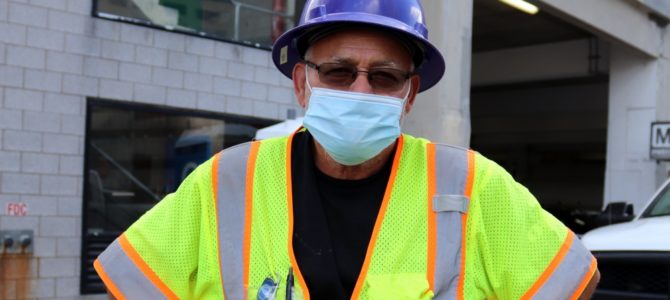
It’s an understatement to say that uncertainty currently plagues the U.S. economy. According to economists, COVID-19 has created an “enormous uncertainty shock,” even larger than in 2008-09. The uncertainty is hitting American workers and employers from all sides.
Nobody is sure if the resurgence in cases represents the second wave or is a continuation of the first. Public health guidance shifts, appropriately, in response to new knowledge. But this can leave workers and employers in limbo. In the early stages of the pandemic, face masks were deemed unnecessary and surface cleansing mandatory. Now, masks are mandatory and it’s thought that the virus doesn’t spread effectively on surfaces.
Policymakers aren’t helping matters. There is little clarity as to what Congress might do about the looming expiration of additional unemployment benefits. Politico is reporting on a CDC field report from Arkansas, finding that changing guidance, inconsistent messages, and outright misinformation from public authorities contributed to the worsening outbreak, especially the disproportionate impact on workers of color.
There is at least one area where policymakers can and should help resolve some of this uncertainty. Employers of all types deserve clear guidance and protection from some degree of liability should exposure to COVID-19 occur as they seek a new normal in operations.
Today, the Bipartisan Policy Center (BPC) will submit a letter to Congressional leadership on this topic. Over the last three months, the BPC has hosted a series of discussions focused on the thorny issues facing different types of organizations as the economy has reopened and the virus has surged again.
One of the key themes that emerged in those discussions is the importance of limiting liability for those employers who act in good faith to comply with public health guidelines in protecting customers, employees, and vendors. We’re encouraged in particular by a new bipartisan bill co-sponsored by Congressmen Henry Cuellar (D-TX) and Garret Graves (R-LA) that seeks to do exactly that.
The Get America Back to Work Act of 2020 would offer retroactive liability protection (back to January 1, 2020) for those employers “acting in good faith.” It does not protect employers who are grossly negligent or act with “flagrant indifference” toward individuals’ safety. It would establish a minimum standard for such protection, preempting inconsistent state laws. Both Cuellar and Graves participated in a BPC discussion about the legislation, appealing to “common sense” and the need to find a balance between employer needs and the health and safety of customers and employees.
Despite this modest measure of bipartisanship, the question of liability protection has been politicized. Congressional Republicans have consistently supported limitations on COVID-19 liability. Many Congressional Democrats had also been exploring the issue — until Senate Majority Leader Mitch McConnell made liability a “red line” issue for any further stimulus. That reduced the likelihood of bipartisan agreement on the issue. At a Senate Judiciary Committee hearing in May, Democrats expressed skepticism about offering liability protection, pointing to existing state tort law as providing sufficient defense.
This political wrangling is unfortunate — there is a fairly clear historical pattern of both parties supporting liability protection for employers during crises. After the September 11th attacks, Congress enacted liability caps and limitations on tort claims. In 1999, President Bill Clinton signed two bills protecting companies from losses and damages as they prepared for potential Y2K computer breakdowns.
There has been promising bipartisan action during the COVID-19 crisis. The first CARES Act included Good Samaritan language protecting volunteer health care professionals and extended liability protection to manufacturers of personal protective equipment. At the state level, Democratic governors in North Carolina and Kansas worked with Republican legislatures to enact liability limitations.
The changing guidance on masks and surfaces are indicative of why retroactive protections are needed. Employers should not be held liable for actions taken in adherence to public health guidelines that later turn out to be incorrect. The CDC findings in Arkansas demonstrate that we evidently need protection from government misguidance.
This is clearly a challenge for business. During the BPC events, we heard perspectives from local businesses, through the D.C. Chamber of Commerce, and small business, from the National Federation of Independent Business. We also talked to larger companies, Conoco Phillips and Casey’s General Stores, about how they have navigated the crisis and their concerns regarding liability. Not surprisingly, these organizations and companies support limitations on the liability they and their members might face.
But this isn’t just about business. The nature of a pandemic, as we’ve cruelly experienced, is that it affects everyone. Colleges and universities, for example, are on the front lines of wrestling with operational challenges. Liability concerns loom over their decisions. During a BPC discussion with three college presidents and the American Council on Education (ACE), these concerns became clear.
With the risk equation changing constantly, they said, it’s a matter of exercising judgment across multiple variables. Holding colleges and universities liable for using their judgment to ensure student and staff safety makes little sense if there aren’t protections in place. There should not be any “Monday morning quarterbacking,” said Peter McDonough, ACE vice president, and general counsel.
As Congress works toward a deal on unemployment benefits, state and local government aid, and liability protection, we hope Democrats and Republicans keep these considerations in mind. Everyone is flying blind, yet we’re all in this together. It would be unfortunate if we allowed uncertainty to exploited to the detriment of employers, workers, and customers. Hopefully, Congress maintains its record of finding bipartisan agreement in the midst of a crisis.
Republished from RealClearPolicy, with permission.









